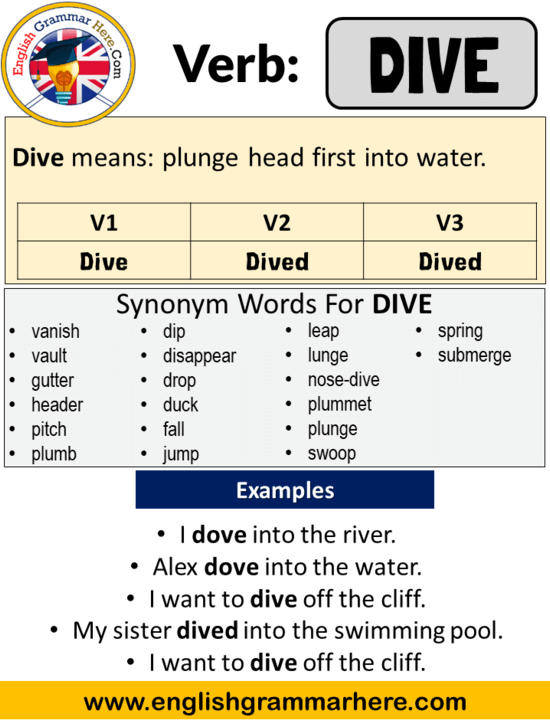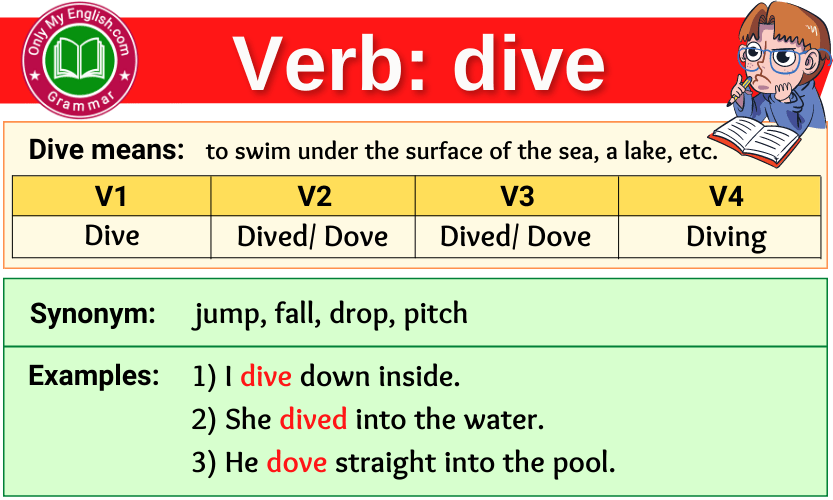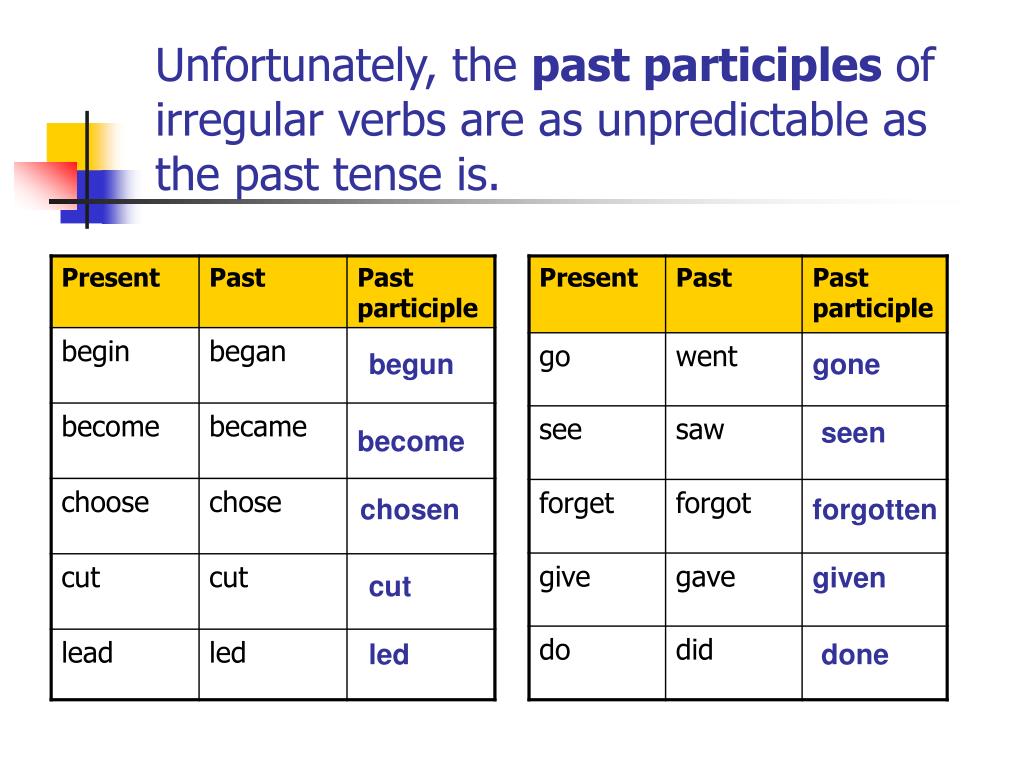
Past Tense Of Dive, Past Participle Form of Dive, Dive Dived Dove V1 V2 V3 Lessons For English
Conjugate the English verb dive: indicative, past tense, participle, present perfect, gerund, conjugation models and irregular verbs. Translate dive in context, with examples of use and definition.. dive verb conjugation to all tenses, modes and persons.

Understanding the Past Tense of Dive Dive into Learning English Grammar ESLBUZZ
"Dived" Is More Traditional Than "Dove" "Dived" is the traditional past tense and past participle of "to dive," but "dove" has crept in over the last two centuries — particularly in the US. This is probably a result of the verb "to drive" (with its past tense "drove") becoming more common. "Dove" for Americans. "Dived" for Brits

Dive Past Tense, V1 V2 V3 V4 V5 Form Of Dive, Past Participle Of Dive and Example Sentences
Dived and dove are both correct past tense forms of the word dive. Dove is more common in North America, while dived is more prevalent among British English speakers. She dived into the icy cold water. She dove into the icy cold water. However, dived is the only acceptable past participle of dive.

Past Tense of Dive, Past Participle of Dive, V1 V2 V3 V4 V5 Form of Dive Dive means; Plunge head
Simple / Indefinite Present Tense. He/She/It dives . I dive. You/We/They dive. Present Continuous Tense. He/She/It is diving. I am diving. You/We/They are diving. Present Perfect Tense.

How do we use the verb 'dive' in the past tense? YouTube
Find the simple past tense and past particle of the verb dive. Also see how to use the verb dive in the past tense with some examples.

Dive Past Simple, Simple Past Tense of Dive Past Participle, V1 V2 V3 Form Of Dive English
Here's the word you're looking for. Answer. The past tense of dive is dived or dove (Canada) . The third-person singular simple present indicative form of dive is dives . The present participle of dive is diving . The past participle of dive is dived . Find more words!

dive Making English Fun
Dove vs. dived. Dived is the traditional past tense and past participle of the verb dive. But the newer dove, which probably came about by analogy with similar words like drove and wove, has been in the language approximately two centuries and is now standard in American and Canadian English. Outside North America, where dived still prevails by.

Past Tense of Dive Dived or Dove? (Pronunciation & Usage)
The verb dive originated in the 13th Century from the Old English dufan (to dive, duck, sink) and dyfan (dip, submerge). As a weak verb, the correct past tense should be dived, and that was indeed the case until 1855 when (according to the Oxford English Dictionary) dove first appeared, in American poet Henry Wadsworth Longfellow's Song of.

Dive Past Tense Verb Forms, Conjugate DIVE
Conjugate the verb dive in all tenses: present, past, participle, present perfect, gerund, etc. English Deutsch български Ελληνικά English. dive dive-bomb dive in dive into diverge diversify Look up "dive" in other languages Arabic Bulgarian Chinese.

Dive Past Tense, Present and Future Conjugations, Dive V1 V2 V3 English Grammar Pdf
Past Tense of Dive! It is an irregular verb. The past tense or V1 and past participle, also called V2 of dive, is either dived or dove. To dive is an intransitive verb, i.e., it does not take an object; therefore, we never used it in the passive. We use this verb to describe an action. For example, it may be followed by adverbs, adverbial.

Dive Verb Forms Past Tense, Past Participle & V1V2V3 »
The Past Tense of Dive. In English grammar, the past tense is used to describe actions that have already happened. The past tense of "dive" is "dived" in British English and "dove" in American English. Both forms are correct and widely used, but "dived" is more common in British English, while "dove" is more common in.

past participle tense 用法 Shophann
The simple past tense is for a completed activity that happened in the past. was diving. were diving. was diving. were diving. were diving. were diving. The past progressive tense is for an ongoing activity in the past. Often, it is used to set the scene for another action.

Dive V1 V2 V3 V4 V5 , Past Tense, Past Participle Form of Dive EnglishAwesome
dive. 'dive' is the model of its conjugation. The preferred past participle and preterit form is dove in American English and dived in British English. infinitive: present participle: past participle: (to) dive. diving. dived, dove.

What is the Past Tense of Dive? The Word Counter
To dive is an verb meaning : To swim under water To jump into water head-first To descend sharply or steeply Or, figuratively: To undertake with enthusiasm, or to plunge into a subject, question, business, etc. Past tense I/you dove or dived She/he dove or dived We/they dove or dived. As you can see, dove and dived are both accepted as past.

Dive Past Tense Archives EngDic
to come or drop down precipitously: plunge. the temperature is diving. to plunge one's hand into something. dived into his pocket. of an airplane: to descend in a dive. to plunge into some matter or activity. she dove into her studies. to plunge or dash for some place. diving for cover.

Past Tense Of Dive Past Tense Definition, Rules and Examples of Past Tenses The
Dive in Future Perfect Tense. Singular. Plural. I will have dived or dove. We will have dived or dove. You will have dived or dove. You will have dived or dove. He/She/It will have dived or dove. They will have dived or dove.